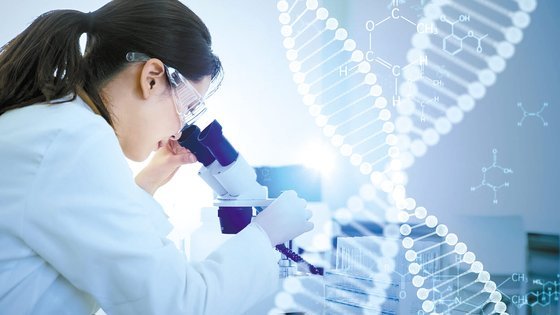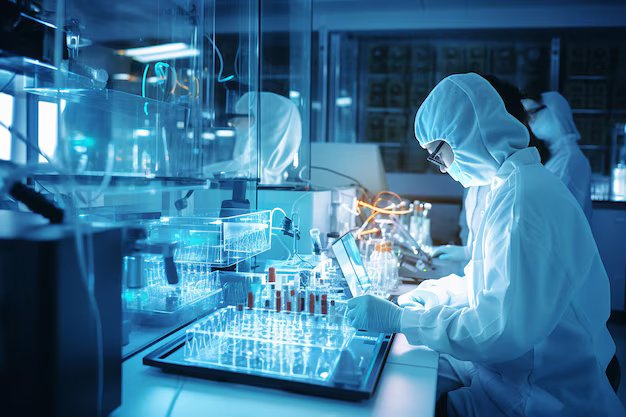Innovations in Pharmaceutical Drug Delivery Systems
July 13, 2024 | Saturday | News
Pharmaceutical drug delivery systems are a cornerstone of effective medical treatment, influencing how drugs are administered and how efficiently they act within the body. Recent innovations in this field are transforming the landscape of medicine, enhancing drug efficacy, reducing side effects, and improving patient compliance. This article explores some of the latest advancements in drug delivery systems and their implications for modern healthcare

Image credit: shutterstock
Advancements in Drug Delivery Technologies
Innovative drug delivery systems have emerged to address the limitations of traditional methods. These advancements focus on optimizing drug release, targeting specific tissues or cells, and improving the overall therapeutic outcomes. Key developments include:
- Nanoparticle-Based Systems: Nanoparticles are increasingly used to deliver drugs in a more targeted and controlled manner. These tiny particles can be engineered to encapsulate drugs and release them at specific sites within the body, thereby enhancing therapeutic efficacy and minimizing side effects. For advanced nanoparticle-based delivery solutions, DIANT Pharma offers specialized equipment and technologies designed for precise drug delivery applications.
- Biodegradable Polymers: Biodegradable polymers are used to create drug delivery systems that gradually release medication over an extended period. These polymers break down naturally in the body, reducing the need for frequent dosing and improving patient adherence to treatment regimens. Such systems are particularly useful for chronic conditions requiring long-term therapy.
- Smart Drug Delivery Systems: Smart delivery systems use stimuli-responsive materials that release drugs in response to specific environmental triggers, such as pH changes, temperature variations, or the presence of certain enzymes. This technology ensures that drugs are released precisely when and where they are needed, enhancing treatment effectiveness and reducing waste.
Targeted Drug Delivery
Targeted drug delivery systems aim to direct medication specifically to diseased tissues or cells, minimizing exposure to healthy tissues and reducing side effects. This approach is particularly valuable in treating cancer, where delivering drugs directly to tumor cells can significantly improve treatment outcomes.
- Monoclonal Antibodies: Monoclonal antibodies are designed to bind to specific antigens found on the surface of cancer cells. By attaching drugs to these antibodies, they can deliver therapeutic agents directly to tumor cells while sparing healthy cells. This targeted approach enhances the precision of treatment and reduces collateral damage.
- Liposomes and Nanospheres: Liposomes and nanospheres are spherical carriers that encapsulate drugs and can be engineered to target specific cells or tissues. These carriers can cross biological barriers more effectively, such as the blood-brain barrier, making them suitable for treating central nervous system disorders.
Advances in Oral Drug Delivery
Oral drug delivery remains one of the most convenient methods for administering medication, but it faces challenges such as drug degradation in the gastrointestinal tract and variable absorption rates. Recent innovations are addressing these challenges to improve oral drug delivery:
- Oral Disintegrating Tablets (ODTs): ODTs are designed to dissolve quickly in the mouth, allowing for rapid drug absorption without the need for water. This technology is beneficial for patients who have difficulty swallowing pills or need quick relief from symptoms.
- Controlled-Release Formulations: Controlled-release formulations release drugs gradually over time, maintaining therapeutic levels in the bloodstream and reducing the frequency of dosing. This approach enhances patient compliance and ensures a more stable therapeutic effect.
The Future of Drug Delivery Systems
The future of drug delivery systems holds exciting possibilities with ongoing research and technological advancements. Emerging trends include:
- Personalized Drug Delivery: Personalized medicine aims to tailor drug delivery systems to individual patients based on their genetic and physiological characteristics. This approach ensures that treatments are optimized for each patient, enhancing efficacy and minimizing adverse effects.
- Wearable Drug Delivery Devices: Wearable devices, such as patches and insulin pumps, offer continuous drug delivery with minimal patient intervention. These devices provide real-time monitoring and control of medication levels, making them ideal for managing chronic conditions like diabetes.
- 3D Printing of Drug Delivery Devices: 3D printing technology enables the creation of customized drug delivery devices with complex geometries. This technology allows for precise control over drug release rates and the development of personalized medication regimens.
Challenges and Considerations
While innovations in drug delivery systems offer numerous benefits, they also present challenges. Ensuring the safety and efficacy of new technologies requires rigorous testing and regulatory approval. Additionally, the cost of advanced drug delivery systems can be a barrier to widespread adoption, necessitating ongoing research to balance innovation with affordability.
___
Innovations in pharmaceutical drug delivery systems are revolutionizing the way medications are administered and managed. From nanoparticle-based systems to personalized medicine, these advancements are enhancing drug efficacy, reducing side effects, and improving patient outcomes. As technology continues to evolve, the field of drug delivery will undoubtedly see further breakthroughs, shaping the future of medical treatment and patient care.




